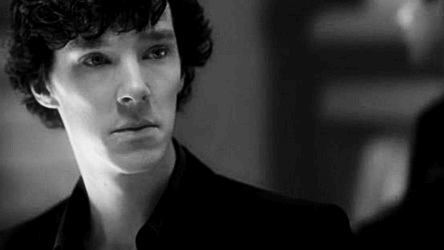
BBC Sherlock Fan Forum - Serving Sherlockians since February 2012.
- belis
- Mycroft's Contact
 Offline
Offline - From: Manchester
- Registered: January 13, 2014
- Posts: 401
Re: Was Mary trying to kill Sherlock, or was it really "surgery"?
Willow wrote:
For reasons unknown to science a machine which works fine at 6 am, and 2 pm, invariably throws a hissy fit at 10 pm; I think it must be a highly specialised form of poltergeist...
That must be Murphy's law number 29. Murphy's law number 30 says that out of all the pumps on the ward the one that will malfunction is the one that delivers the most dengerous medication to the most critically ill patient. One of the many things that I like about psychiatry is that I don't have to put up with so much technology any more.
In terms of Mary quitely killing Sherlock off whilst in hospital there is a range of substances that can be very districtely injected into the IV line. They don't have an immediate effect to leave her red handed on the crime scene and can't be found on post mortem examination. She wouldn't have to mess around with the equipment or relay on crude methods like using a pillow.
- Willow
- Consulting Criminal
 Offline
Offline - Registered: January 14, 2014
- Posts: 858
Re: Was Mary trying to kill Sherlock, or was it really "surgery"?
belis wrote:
Willow wrote:
For reasons unknown to science a machine which works fine at 6 am, and 2 pm, invariably throws a hissy fit at 10 pm; I think it must be a highly specialised form of poltergeist...
That must be Murphy's law number 29. Murphy's law number 30 says that out of all the pumps on the ward the one that will malfunction is the one that delivers the most dengerous medication to the most critically ill patient. One of the many things that I like about psychiatry is that I don't have to put up with so much technology any more.
In terms of Mary quitely killing Sherlock off whilst in hospital there is a range of substances that can be very districtely injected into the IV line. They don't have an immediate effect to leave her red handed on the crime scene and can't be found on post mortem examination. She wouldn't have to mess around with the equipment or relay on crude methods like using a pillow.
Absolutely; pillows are for amateurs! Fortunately Mycroft's videoing equipment would have recorded it, thus leaving her with little option but to rely on quiet verbal threats until such time as she could get away from the cameras, but I'm sure her super assassin supplies are safely tucked away somewhere. London is a very big place ![]()
- Sherlock Holmes
- Administrator
 Offline
Offline 
- From: 221B Baker Street
- Registered: February 7, 2012
- Posts: 5,162
Re: Was Mary trying to kill Sherlock, or was it really "surgery"?
belis wrote:
besleybean wrote:
No alarm sounded when Janine switched off the morphine.
That's dramatic license. Normally patient controlled analgesia pumps are locked behind a cover that can be only opened with a key or are password protected. Or both. For obvious reasons we don't want people interfering with them. They also have alarms. If you start messing with the pump or IV line the device will start screatching and lighting up like a christmas tree. Keeps things safe and at the same time ensures that no patient on a ward gets any sleep as those things keep alarming all night long for most silly reasons.
It's dramatic licence that Mary could perform "surgery" on Sherlock, it's dramatic licence that bombs have a massive great off switch like a light bulb...there's a lot of things in this show that aren't exactly believable or hundred per cent true to the real world, but sometimes we just need to accept them as being possible within the world of the show. I think that's what we're gonna have to do with the Mary situation.
---------------------------------------------------------------------------------------------------------------------------------------------
Eventually everyone will support Johnlock.
Independent OSAJ Affiliate

- •
- besleybean
- Threatened Knighthood
 Offline
Offline 
- From: Carnoustie, Angus, Scotland.
- Registered: October 4, 2012
- Posts: 21,380
Re: Was Mary trying to kill Sherlock, or was it really "surgery"?
I know boss, I was slightly playing devil's advocate.
For instance, I believe only a psychopath would turn off the drip of a gravely ill man.
---------------------------------------------------------------------------------------------------------------------------------------------------------------
- belis
- Mycroft's Contact
 Offline
Offline - From: Manchester
- Registered: January 13, 2014
- Posts: 401
Re: Was Mary trying to kill Sherlock, or was it really "surgery"?
besleybean wrote:
I know boss, I was slightly playing devil's advocate.
For instance, I believe only a psychopath would turn off the drip of a gravely ill man.
Yes I agree. Which means that Jannine fits right in with the rest of the gang. ;)
- besleybean
- Threatened Knighthood
 Offline
Offline 
- From: Carnoustie, Angus, Scotland.
- Registered: October 4, 2012
- Posts: 21,380
Re: Was Mary trying to kill Sherlock, or was it really "surgery"?
What a dysfunctional group of psyschopaths!
---------------------------------------------------------------------------------------------------------------------------------------------------------------
- belis
- Mycroft's Contact
 Offline
Offline - From: Manchester
- Registered: January 13, 2014
- Posts: 401
Re: Was Mary trying to kill Sherlock, or was it really "surgery"?
besleybean wrote:
What a dysfunctional group of psyschopaths!
Psychopaths yes. Dysfunctional never. They are all doing pretty OK for themselves with an occasional hiccup. That's part of the attraction. They can get away with outragous behaviour that would not be possible in real life and if it was possible it would be punished.
- Sherlock Holmes
- Administrator
 Offline
Offline 
- From: 221B Baker Street
- Registered: February 7, 2012
- Posts: 5,162
Re: Was Mary trying to kill Sherlock, or was it really "surgery"?
belis wrote:
besleybean wrote:
I know boss, I was slightly playing devil's advocate.
For instance, I believe only a psychopath would turn off the drip of a gravely ill man.Yes I agree. Which means that Jannine fits right in with the rest of the gang. ;)
Yeah, that was pretty mean of her, I have to say.
---------------------------------------------------------------------------------------------------------------------------------------------
Eventually everyone will support Johnlock.
Independent OSAJ Affiliate

- •
- Willow
- Consulting Criminal
 Offline
Offline - Registered: January 14, 2014
- Posts: 858
Re: Was Mary trying to kill Sherlock, or was it really "surgery"?
Sherlock Holmes wrote:
belis wrote:
besleybean wrote:
I know boss, I was slightly playing devil's advocate.
For instance, I believe only a psychopath would turn off the drip of a gravely ill man.Yes I agree. Which means that Jannine fits right in with the rest of the gang. ;)
Yeah, that was pretty mean of her, I have to say.
And no doubt we will see more of Janine in S4 ![]()
- Be
- Unregistered
Re: Was Mary trying to kill Sherlock, or was it really "surgery"?
On the one hand it is art and not science.
On the other hand it can't totally jump into fairy tale land.
I believe that there is a solution or explanation for not a miss, but surgery.
Last edited by Be (March 3, 2014 1:42 pm)
- RavenMorganLeigh
- Official Blogger
 Offline
Offline 
- From: Seattle, WA, USA
- Registered: December 25, 2013
- Posts: 1,575
Re: Was Mary trying to kill Sherlock, or was it really "surgery"?
My male boss, and one of my other male best freinds finally watched Sherlock-- saw the whole series.
My boss (more like my brother) said that he thought series 3 was badly written, huge plot holes, and had no sympathy for Mary whatsoever.
My other friend went off-- on Mary. Doesn't get it at all.
I'm wondering if there's a fundamental difference in the way women see Mary--are we more likely to have sympathy for her VS the guys. I'd love to hear more from male fans.
- SusiGo
- The game is never over (moderator)
 Offline
Offline 
- From: Germany
- Registered: June 5, 2012
- Posts: 22,969
Re: Was Mary trying to kill Sherlock, or was it really "surgery"?
I got the impression that many women (at least on this forum) do not have a lot of sympathy for Mary. I really tried. And failed.
------------------------------
"To fake the death of one sibling may be regarded as a misfortune; to fake the death of both looks like carelessness." Oscar Wilde about Mycroft Holmes
"It is what it is says love." (Erich Fried)
“Enjoy the journey of life and not just the endgame. I’m also a great believer in treating others as you would like to be treated.” (Benedict Cumberbatch)

- besleybean
- Threatened Knighthood
 Offline
Offline 
- From: Carnoustie, Angus, Scotland.
- Registered: October 4, 2012
- Posts: 21,380
Re: Was Mary trying to kill Sherlock, or was it really "surgery"?
I have sympathy for her, even though she did shoot my beloved Sherlock.
But he survived and went on to muder somebody.
So it seems a tad unfair to hold any grudge against Mary.
Last edited by besleybean (March 4, 2014 9:29 pm)
---------------------------------------------------------------------------------------------------------------------------------------------------------------
- RavenMorganLeigh
- Official Blogger
 Offline
Offline 
- From: Seattle, WA, USA
- Registered: December 25, 2013
- Posts: 1,575
Re: Was Mary trying to kill Sherlock, or was it really "surgery"?
besleybean wrote:
I have sympathy for her, even though she did shoot my beloved Sherlock.
But he survived and went on to muder somebody.
So it seems a tad unfair to hold any grudge against Mary.
Though, his reasons for it were different. He basically saved Mary and John-- (and probably a whole lot of other people)-- Mary shot Sherlock in order to get what she wanted--she wanted to be able to keep lying to John, and have him never find out the truth about her past.
There's a big, big difference there in motivation. I still maintain that there is this wishful-thinking-romance-novel sort of logic here, that whatever is necessary-- even shooting and killing someone (or even just gravely injuring them) is justifiable if it's to preserve a love relationship. If that's what the writers wanted us to take away from this, I think it's pretty cynical, and reflects badly on women-- and it's a horrible example to set for young girls.
- besleybean
- Threatened Knighthood
 Offline
Offline 
- From: Carnoustie, Angus, Scotland.
- Registered: October 4, 2012
- Posts: 21,380
Re: Was Mary trying to kill Sherlock, or was it really "surgery"?
Yeah, see I'm not sure it is that...or else if it is, it must be to set up for a big tragic loss of Mary ,later on...
But I think they may give us more than this.
---------------------------------------------------------------------------------------------------------------------------------------------------------------
- Sherlock Holmes
- Administrator
 Offline
Offline 
- From: 221B Baker Street
- Registered: February 7, 2012
- Posts: 5,162
Re: Was Mary trying to kill Sherlock, or was it really "surgery"?
Mary's a great character, although I'm not sure I actually have any sympathy for her per say...Sympathy would be the wrong word to describe it. She does genuinely seem to love John but you shouldn't lie to someone you love anyway, that's sort of the bottom line of it, for me. If she really believed Sherlock's theory that John loves danger and dangerous people and that's why he chose her, then she could have sat him down a long long time ago and gently explained all about her past and come clean. I'm sure he would have had a much better reaction and would definitely not have dumped her or anything.
---------------------------------------------------------------------------------------------------------------------------------------------
Eventually everyone will support Johnlock.
Independent OSAJ Affiliate

- •
- SusiGo
- The game is never over (moderator)
 Offline
Offline 
- From: Germany
- Registered: June 5, 2012
- Posts: 22,969
Re: Was Mary trying to kill Sherlock, or was it really "surgery"?
I agree with you. IMO one problem with the ongoing Mary discussion is that two things often get mixed up: personally not liking Mary the character for what she does to Sherlock and John versus not liking Mary as a character created by Moftiss.
Two fundamentally different things. I never liked Moriarty as a "person" but he is a great character. And something like that, albeit on a somewhat smaller scale, goes for Mary.
The only thing I cannot do is like her for the things she does and easily accept them.
------------------------------
"To fake the death of one sibling may be regarded as a misfortune; to fake the death of both looks like carelessness." Oscar Wilde about Mycroft Holmes
"It is what it is says love." (Erich Fried)
“Enjoy the journey of life and not just the endgame. I’m also a great believer in treating others as you would like to be treated.” (Benedict Cumberbatch)

- Mattlocked
- One More Miracle
 Offline
Offline 
- From: Germany
- Registered: June 29, 2012
- Posts: 6,781
Re: Was Mary trying to kill Sherlock, or was it really "surgery"?
well, I guess (no, I'm sure) John told her about Sherlock and their "adventures".... ^^
__________________________________
"After all this time?" "Always."
Good bye, Lord Rickman of the Alan
- Willow
- Consulting Criminal
 Offline
Offline - Registered: January 14, 2014
- Posts: 858
Re: Was Mary trying to kill Sherlock, or was it really "surgery"?
RavenMorganLeigh wrote:
besleybean wrote:
I have sympathy for her, even though she did shoot my beloved Sherlock.
But he survived and went on to muder somebody.
So it seems a tad unfair to hold any grudge against Mary.Though, his reasons for it were different. He basically saved Mary and John-- (and probably a whole lot of other people)-- Mary shot Sherlock in order to get what she wanted--she wanted to be able to keep lying to John, and have him never find out the truth about her past.
There's a big, big difference there in motivation. I still maintain that there is this wishful-thinking-romance-novel sort of logic here, that whatever is necessary-- even shooting and killing someone (or even just gravely injuring them) is justifiable if it's to preserve a love relationship. If that's what the writers wanted us to take away from this, I think it's pretty cynical, and reflects badly on women-- and it's a horrible example to set for young girls.
Yes; I think this is a point which is extremely important, and can't be emphasised enough. Shooting someone so your husband won't find out that you have lied to him from first to last is a fundamentally selfish action, and cannot be excused under the heading 'but she did it because she loved her husband'.
It's an appalling way to look at the world, and I really don't think that Moftiss want to leave us with that take home message; after all, what's next? If Mary's enemies come after her, where do we draw the line at what is or is not morally acceptable behaviour in such circumstances? Does John's 'privilege' extend to killing them, or to help her kill them, or just help her hide the bodies?
There is nothing that Mary either does or says to suggest that she would see anything wrong with shooting yet more people if they got between her and what she wanted; Moffat acknowledged this when he said that she had to be outed because the show would otherwise have consisted of a lethal killer nurse wandering around shooting anybody she thought might possibly threaten John and Sherlock.
In choosing to out her by showing us her shooting Sherlock, Moftiss framed it in such a way that we cannot gloss over it; she doesn't put a bullet into CAM, who is, after all, the villain. She puts a bullet into Sherlock, who is far from being an angel, but is on the side of the angels, instead...
- This Is The Phantom Lady
- Threatened Knighthood
 Offline
Offline 
- From: Home of Hamlet (Denmark)
- Registered: February 6, 2014
- Posts: 10,183
Re: Was Mary trying to kill Sherlock, or was it really "surgery"?
Not sure if this is the right thread...
But I have been wondering... The scene in 221B where Sherlock called the ambulance and made the comment about it taking 8 minutes for a London ambulance to arrive.
The paramedic says that they were told there had been a shooting.
Watching TV shows about ambulances here they often made a point to show that the ambulance has to wait for police to clear and secure the scene in case of violent acts before the paramedics can show up.
So... where's the police?
~~~~~~~~~~~~~~
"Don't talk out loud, you lower the IQ of the whole street!"

"Oh Watson. Nothing made me... I made me"
"Luuuuurve Ginger Nuts"
Tumblr[/url] I [url=]AO3
#IbelieveInSeries5

